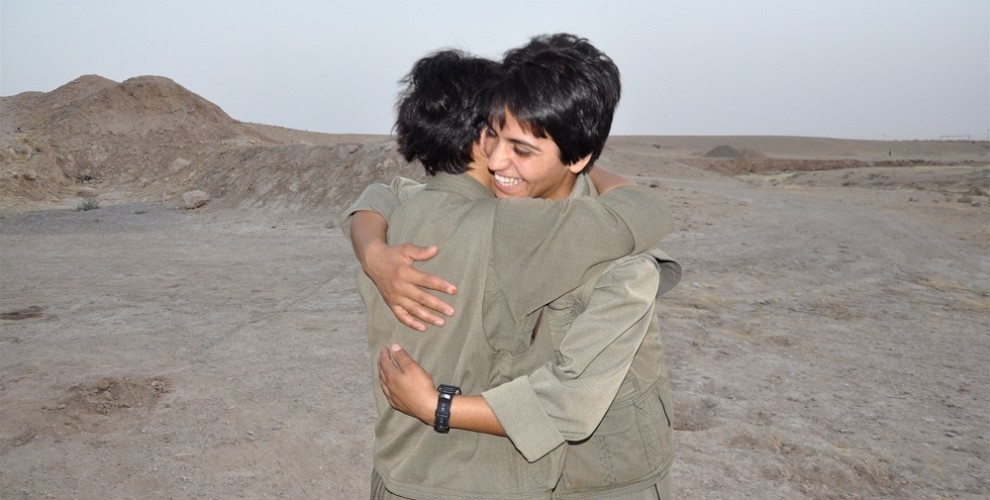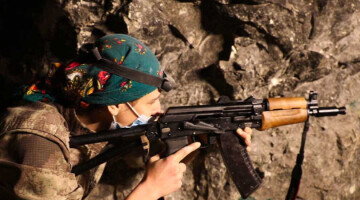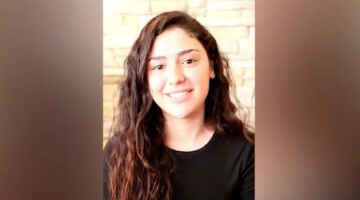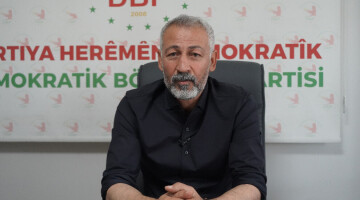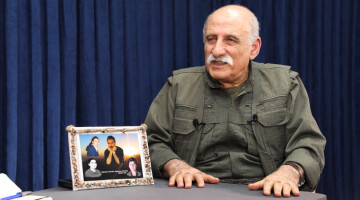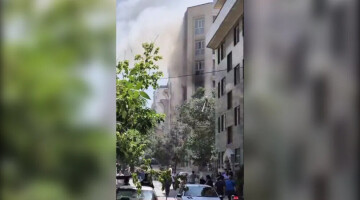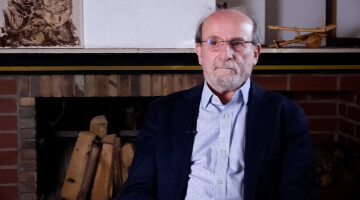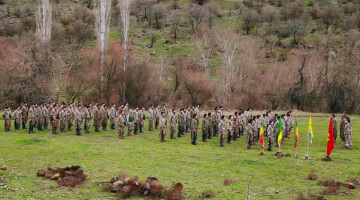Two sisters, two comrades... Şîmal Amara and Dorşîn Şîmal. One betook herself in Amed to the ranks of freedom in 2006, the other one 5 years later in 2011. They spent the years to come in different regions but never came across each other. Finally these two freedom fighters met each other in the Medya Defence Zones. Şîmal Amara and Dorşîn Şîmal spoke to the ANF on their participation in the struggle and their reunion after all these years.
At first the elder sister Şîmal Amara spoke: "In 2006 I decided to join the ranks in protest against the isolation imposed on our leader Apo. Another decisive factor that made me go was the martyrdom of comrade Serhildan in 2004. When I was a sheepherder on the mountains, I saw him regularly. His martyrdom left a deep impact on me. I burned to join the ranks, but the comrades told me back then that I was yet too small and did not accept it. In 2004 then I decided to join, but in 2006 I set forth and became a guerrilla myself."
Dorşîn said, that after Şîmal joined the guerrilla, the Turkish state executed heavy pressures on the family and continued: "After comrade Şîmal joined the ranks, the enemy launched heavy oppressions. I myself had been on a quest as well. But my decision burst forth abruptly. I joined in 2011, on the one hand affected by comrade Şîmal, on the other hand due to the national problems ravaging."
DIFFERENT PLACES, SAME FEELING
Şîmal Amara received the news soon that her little sister, influenced by her own participation, had joined the ranks of the freedom struggle, too, to become a comrade. She gave an account of those moments with these words: "From the year 2010 onwards I am active in the Çarçella area. When I got wounded in 2012 I was taken to hospital. At those moments I received a note, which had a photo attached to it. As I looked at the photograph I did not recognize her at the first glance. I was thinking about who that comrade was and where I might have seen her. But after reading the note, I realized that it was my sister, yet which one I had to guess first. I looked at her more attentively and then all of a sudden I recognized her face. I was gripped with excitement and tears rolled down my eyes. Meanwhile the doctors came to me and prepared the serum. She joined in 2011, but in 2012 only I learned of it."
Dorşîn noted that after she became a guerrilla she burned to see her sister Şîmal, saying: "After I joined the ranks I did not know where comrade Şîmal actually was. But I was constantly on a quest. After I joined in Amed, I went to Dersim. There I asked everyone whether they know comrade Şîmal, but no one seemed to know her. For example, even when I spoke with our comrades over the mobile radio I kept asking myself: "Could this be Şîmal". I sent a note, but it was left unanswered. I did not know whether my notes actually reached her or not."
Regarding her sister’s decision to join the ranks and become her companion, Şîmal said: "What filled my heart with excitement and mirth was the fact that my sister has become a journeyer on the path of the truth and my comrade. More importantly, she gave this decision as a woman. And this caused me to be gripped with profound emotions. It became a grand source of morale for me. Later we spoke to each other on some occasions using the mobile radio, but we still did not get the chance to meet."
Dorşîn stressed that her sister, and now her comrade Şîmal provided her always with strength in the most difficult times, saying: "The thought to side with her in the same struggle gave me enormous strength. I did not even know where she was, but that still did not reduce the energy I got from her. What brought me to here might have been that very energy to begin with. She herself explained to me, too, that this condition requires a special understanding. That is true indeed. In the most difficult times of all, as soon as my thoughts drifted to her I was filled with new energy."
“I WAS CURIOUS ABOUT SEEING HER IN GUERRILLA UNIFORM”
Şîmal stated that she had been always immensely curious about seeing her sister in guerrilla uniform: "When I first arrived here, she occurred in my dreams very often. I dreamed of her in fact many times. I felt that she was near me. I had no idea at all, but then the comrades told me that she had come here too for training. In order to see her, we marched in the middle of the night to her. I had seen her in some old photos, but I was eagerly anticipating seeing her in guerrilla dresses, with arms and armament. I cannot put my emotions of then into words."
Dorşîn always hoped to see Şîmal, be it to exchange a few words only. She continued saying: "After spending five years in Dersim, the comrades sent me to Southern Kurdistan for the training. Before I set out, I got the opportunity to speak with her. She was assuming for some time that I had already fallen a martyr. She had received some information like this. After a long time we met again. We bore great desire in our hearts. I was constantly searching for ways and means to speak and see her."
“A THIRD DEFINITION IS NECESSARY”
Şîmal called the reunion with her sister and comrade Dorşîn a "third definition" and gives following account of those moments: "The comrades were fooling about. They would go to her and say that Şîmal was ill and wanted to see her. I told them to stop it, but they locked me in a car. After that I really saw that comrade Dorşîn was coming. She opened the door of the car and we fell in one another's arms. I cannot describe those moments. The emotions were overwhelming. Struggling for the same cause and being comrades in arms, implies a very special feeling. It is more than simple sisterhood. It even differs from regular comradeship. In fact, a third definition is necessary to describe this situation... I tried to determine it, but I could not find an adequate description."
Dorşîn expressed the moments the "two sisters and comrades" met with these words: "After finally reaching these zones despite all difficulties, the comrades told me that Şîmal was very ill and that they would transfer her to another place. I was thinking: "Why all this, I had not even the chance to see her, and now she'll leave for another place?" But when we met each other eventually, we spent three days together. Yet a special feeling never let go of me, as I was wondering if this was a dream."

